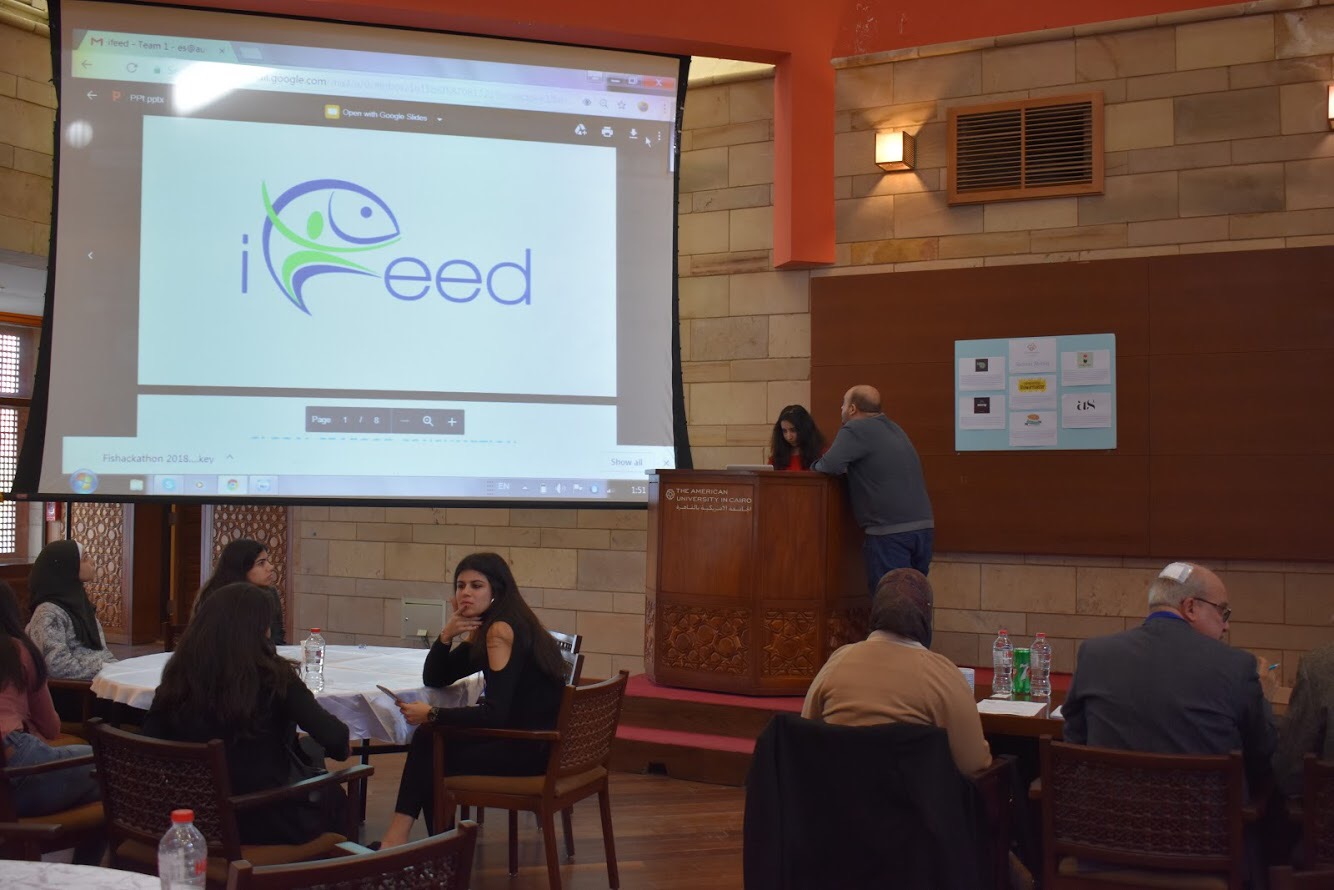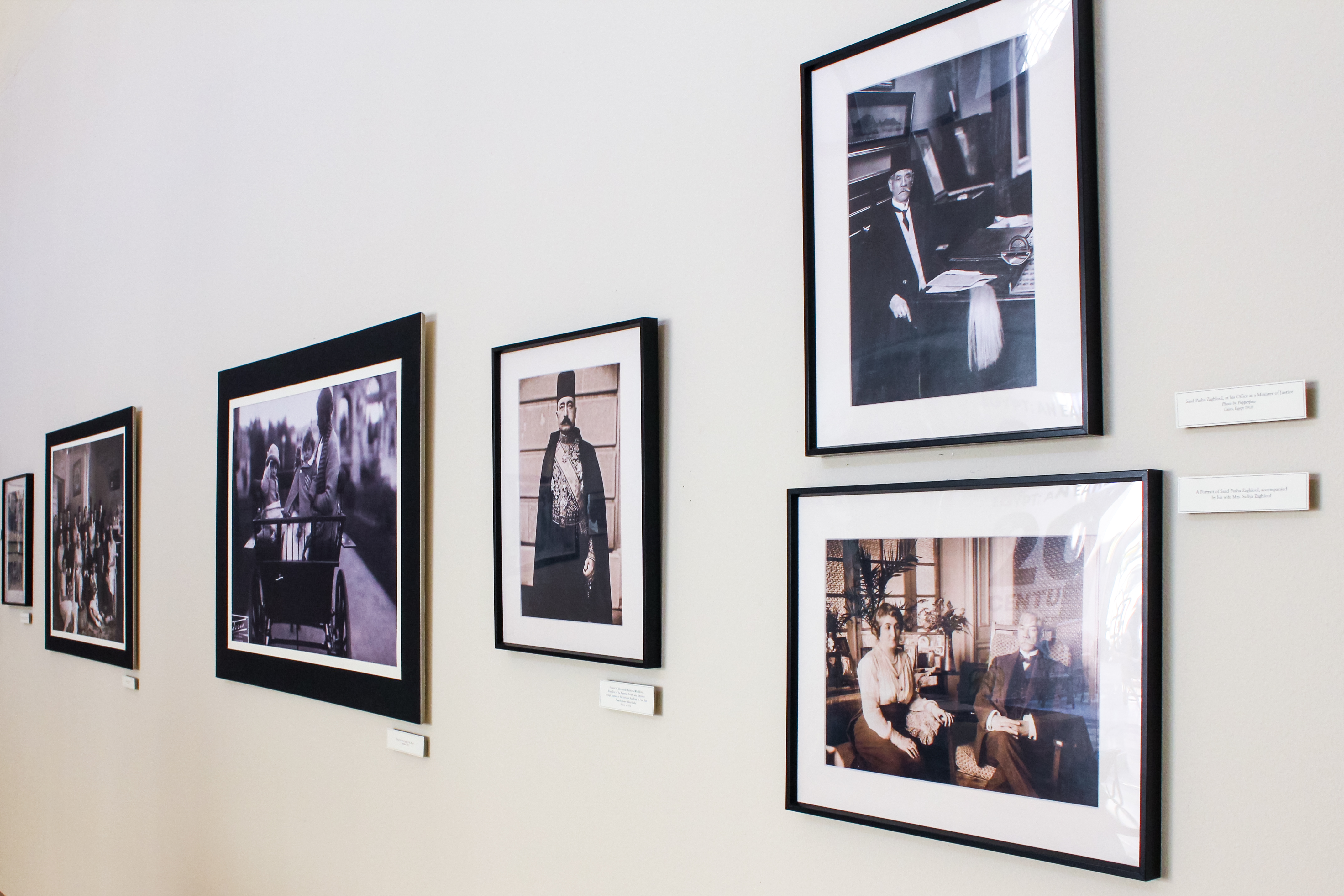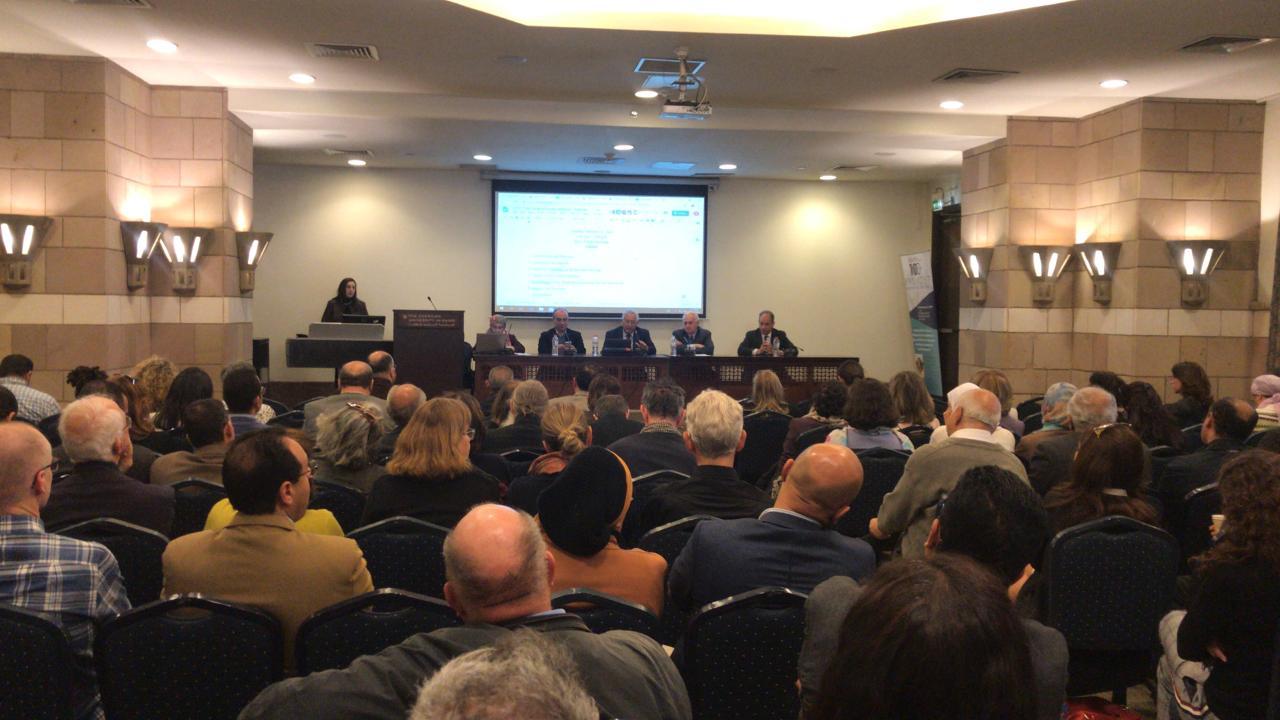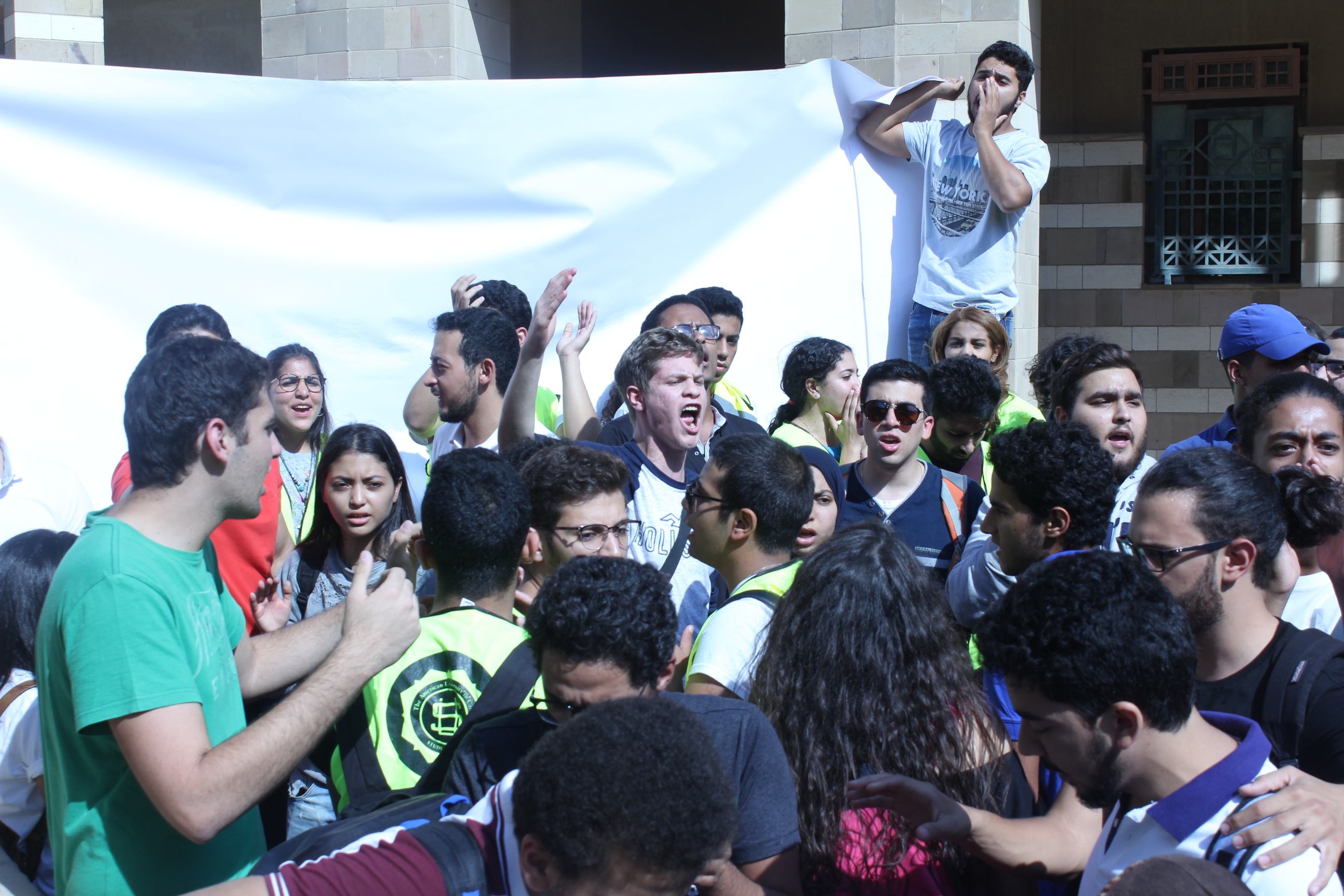Entrepreneurs’ Society Fishackathon Promotes Marine Life Sustainability
By Nouran Selim
Follow @Nouraneselim97
AUC’s Entrepreneurs’ Society (ES) partnered with HackerNet, a non-profit organization, to bring the very first Fishackathon competition to Cairo this February, in an attempt to empower youth to take a stand toward developing sustainable solutions.
Fishackathon is an international competition that was started in 2014 in Canada by HackerNet to address global challenges in maintaining sustainable fisheries through the use of technological solutions.
Participating teams had to develop a practical, creative and technical solution to one of three problems: sustainability, law enforcement and marketplace.
Sustainability tackles overfishing, pollution and other hazards threatening the extinction of marine species and throwing off the ecological balance.
Enforcement deals with firms lacking resources to effectively enforce regulations, which results in environmental damages and significant inequity, while marketplace focuses on poor data access, which puts small players at a disadvantage and hinders firms from making smart, socially responsible decisions.
“I found the teams to be very, very competitive. Someone had face recognition for fish, someone had like a fan pump for the water, someone else had marketplace website and [there were] many other creative solutions,” ES President Jenny El Boushy told The Caravan.
The competition had almost no requirements, no educational prerequisites and no age requirements. It also allowed both AUCians and Non-AUCians to participate.
“The ideal team would consist of a coder, a fisher, a science expert, a business student and two more people of different majors or expertise,” said El Boushy.
The winning team would receive $1000 and has seven days to develop their service or product even more to compete at a regional, and then later on, a global level.
Menatallah Hassan, an actuarial science freshman and CEO of the winning team, joined the competition because of her passion toward conserving the environment.
She is also very committed to how current enterprises adopt clean technology to achieve environmental objectives.
“We are not doing a good job in caring about our environment in 2018. If this trend continues, then the world will be facing a very dark era and the next generation will not be able to survive,” she said.
Hassan believes that the nature of the competition and how teams had to create solutions for fisheries and aquaculture is interesting as it allows students to have an impact and work toward saving the world.
Her team consisted of a fishery expert, a technical expert and a business developer. The team focused on fish feed, which is generated from an unsustainable source called fish meal and fish oil captured from wild-caught fish whose population is declining.
“Fish feed companies around the world are looking for alternatives or substitutes for fish meal to have more sustainable options, as it’s increasingly becoming one of the most important animal proteins that humans consume,” said Hassan.
The team came up with IFeed, an application and a website designed to connect suppliers of fish feed to potential farmers, who can buy fish feed through the platform.
“We’re basically like SOUQ or Amazon for fish feed. However, we do that in a very innovative way to ensure the sustainability and the achievement of our environmental objectives,” added Hassan.
The competition had four judges: Khaled Al-Hosny, chairman of the general authority for Fisheries, Islam Gohar, a serial entrepreneur, Arthur Bos, associate professor of marine biology at AUC, and Eman El Koshairy, co-founder at Al Makinah Coding School.
Bos was interested to see how individuals with different backgrounds could come up with innovative solutions to real life problems in fisheries and aquaculture.
“I was impressed. It was very positive that all groups considered detailed sustainable solutions like using solar energy, supporting biodiversity, and avoiding bad fishery practices,” he told The Caravan.
The criteria for choosing the winning team were given by the organization, so that all judges elsewhere follow the same standard. These included: practicability, teamwork and technological knowledge.
While the competition was a success and participating teams found it beneficial, the organizers faced several challenges with regards to hosting the event on campus.
“We had to communicate with people who are coming. Some people didn’t register online so we didn’t have their names and then they showed up and wanted to participate,” said El Boushy.




